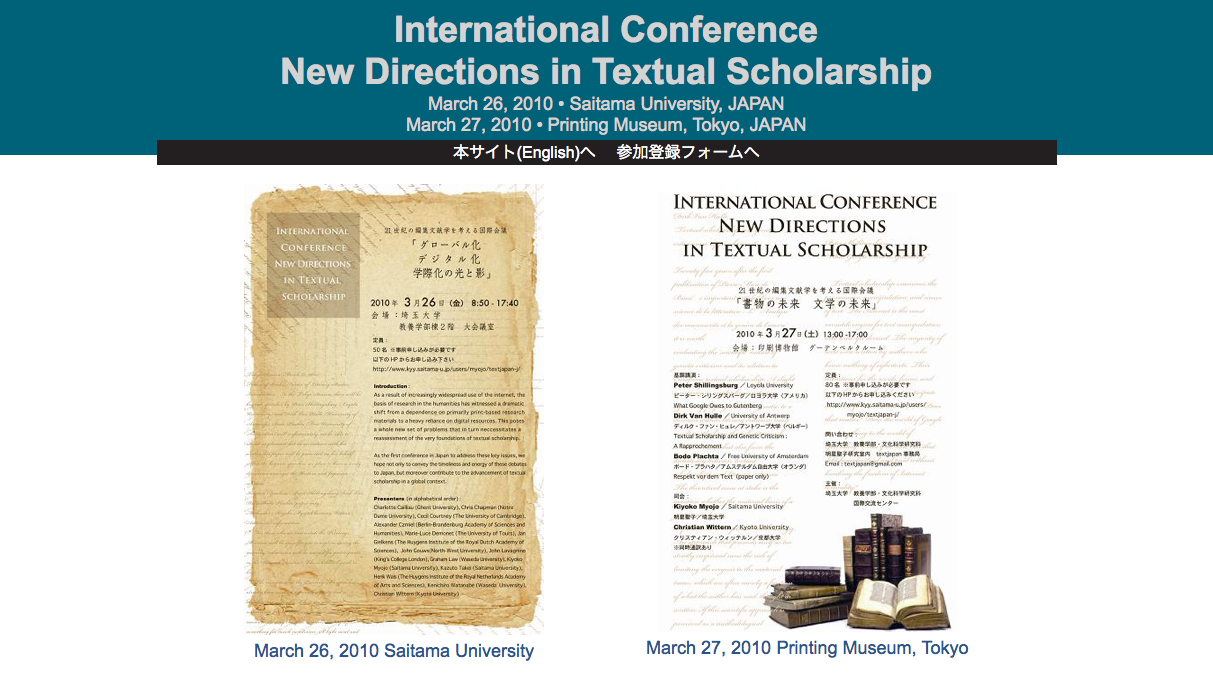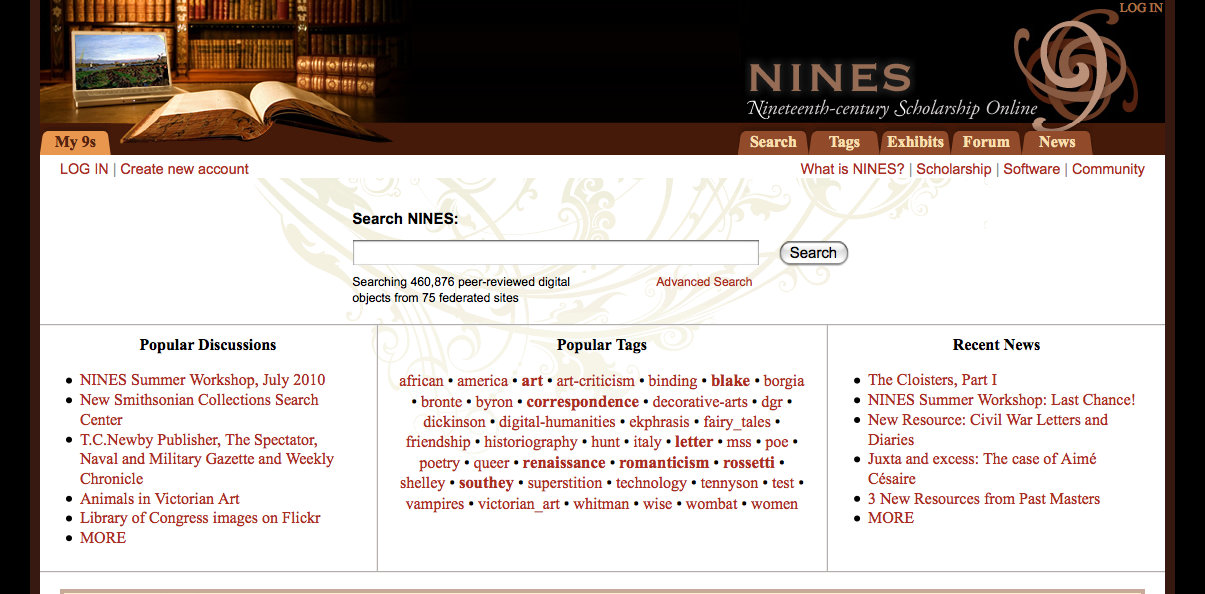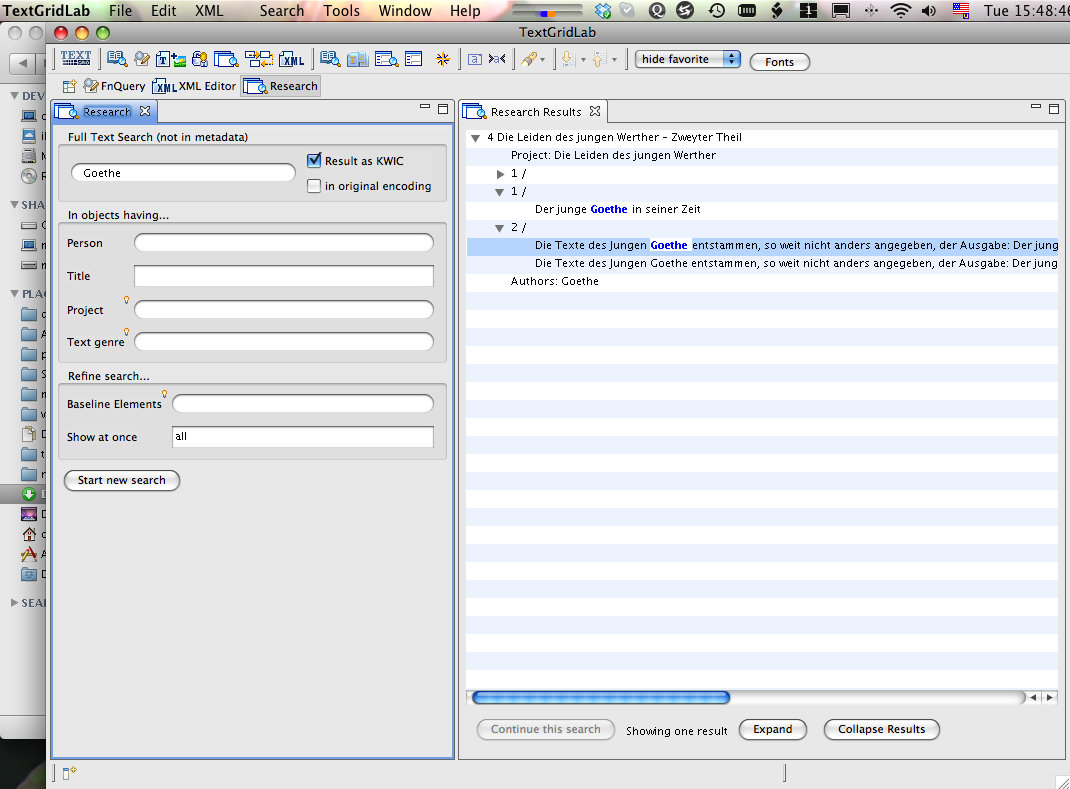海外Digital Humanitiesの動向と日本
Table of Contents
What is Digital Humanities?
- The same as Humanities, just digital?
- But how does "digital" change the game?
-
Digital Humanist as "user", "producer" or "practitioner"
- not a "service provider", but a participant in an ongoing discussion?
- Digital Humanities as a dialog between developer and researcher?
Changing names and activities…
-
in academic societies:
-
ACH: Association for Computers and the Humanities [USA]
- founded in 1978
-
ALLC: Association for Literary and Linguistic Computing [Europe]
- first conference in 1970 (Cambridge), annually to 1988 (cf. http://www.allc.org/content/conf/index.html)
- 1989 - 2006 together with ACH
-
COCH/COSH or Consortium for Computers in the
Humanities/Consortium pour ordinateurs en sciences humaines
(Announcement on Humanist 1989-02-23) [Canada]
- Society for Digital Humanities / Société pour l'étude des médias interactifs (SDH/SEMI) (after 2005?)
-
Association for Computational Linguistics [USA]
- founded in 1960 as Association for Machine Translation and Computational Linguistics (AMTCL). It became the ACL in 1968. In the first year or two membership seems to have been about
- no association with ADHO
-
ADHO: Alliance of Digital Humanities Organizations [International]
- discussions started 2002 at the ALLC/ACH conference in Tübingen
- since 2007, the ALLC/ACH conferences are held by ADHO as Digital Humanities Conferences
-
ACH: Association for Computers and the Humanities [USA]
-
in journal titles:
- CHum: Computers and the Humanities (1966-2004) (After 2004: Language Resources and Evaluation )
- LLC: Literary and Linguistic Computing (1986-) 1973-1985: Association for Literary and Linguistic Computing bulletin 1980-1985: ALLC Journal
-
Digital Studies/Le champ numerique (2008-)
- online journal of SDH/SEMI
- current scholarship in digital humanities (http://www.digitalstudies.org/ojs/index.php/digital_studies/about)
-
Digital Medievelist
- online community and journal, established in 2003.
- website: http://www.digitalmedievalist.org/
-
Text Technology
-
started 1991 at Wright University (Ohio, USA) as
Research in word processing newsletter - now journal of SDH/SEMI, available online since Vol.14, 2005.
- website: http://texttechnology.mcmaster.ca/home.html
-
started 1991 at Wright University (Ohio, USA) as
-
Digital Humanist Quarterly
- ADHO journal, since 2007.
- website: http://www.digitalhumanities.org/dhq/
- eHumanities (European 7 framework program)
Publications
- HUMANIST discussion group (established 1987), now at http://digitalhumanities.org/humanist/
- Willard McCarty: Humanities Computing, Houndmills, Hampshire and New York, 2005 (Palgrave MacMillan)
- Susan Schreibman, Ray Siemens and John Unsworth (ed.): A Companion to Digital Humanities, Malden MA, Oxford and Victoria, 2004 (Blackwell Publishing). (available online at http://www.digitalhumanities.org/companion/)
Keyword: modeling
- DH is not using the knowledge jukebox, but employing the computer as a modeling tool for research in humanities
-
The charlatans in humanities computing (cf. Tito Orlandi http://rmcisadu.let.uniroma1.it/~orlandi/mccarty1.html and John Unsworth http://www3.isrl.illinois.edu/~unsworth/mith.00.html)
Charlatans—a strong word, I know—are, in Professor Orlandi’s view, people who present as “humanities computing” some body of work that is not: it may be computer-based (for example, it may be published on the Web), and it may present very engaging content, but if it doesn’t have a way to be wrong, if one can’t say whether it does or doesn’t work, whether it is or isn’t internally consistent and logically coherent, then it’s something other than humanities computing.
Keyword: collaboration
-
The times of the lonesome scholar are gone
- In the west, research in Humanities is (was) largely a solipsistic activity, jointly authored articles are rare.
- Japan is different: long tradition of collaborative work (共同研究)
-
Digital Humanities thrives on collaboration
- shift from cooperation (協力関係) to collaboration (共同作業) [Unsworth]
- "collaboration" in DH2009: 76, DH2008: 67
- "cooperation" in DH2009: 8, DH2008: 7
-
Japan has some potential here, but there are difficulties
- Textual Scholarship not established as a field (but see New Directions in Textual Scholarship: http://www.kyy.saitama-u.ac.jp/users/myojo/textjapan-j/ )

New Directions in Textual Scholarship
- No awareness of the advantages of standardization
-
Two examples
-
Nines [Networked Infrastructure for Nineteenth-Century
Electronic Scholarship] (http://www.nines.org)
"Searching 453,491 peer-reviewed digital objects from 71
federated sites"

Nines start screen
- TextGrid: http://www.textgrid.de/

Text Grid working environment
-
Nines [Networked Infrastructure for Nineteenth-Century
Electronic Scholarship] (http://www.nines.org)
"Searching 453,491 peer-reviewed digital objects from 71
federated sites"
-
other problems:
cf "The open scholar" http://www.academicevolution.com/2009/08/the-open-scholar.html
- Open Notebook science
Keyword: standardization
- prerequisite for collaboration and cooperation in the Digital Age
-
Text Encoding Initiative (TEI), since 1987
- A research community centered around digital text
- Recommendations and reasoning for representing electronic text
- A format for interchange of text
- Other practices and protocols need standardization
Date: 2010-02-24 13:03:46 JST
HTML generated by org-mode 6.34trans in emacs 23